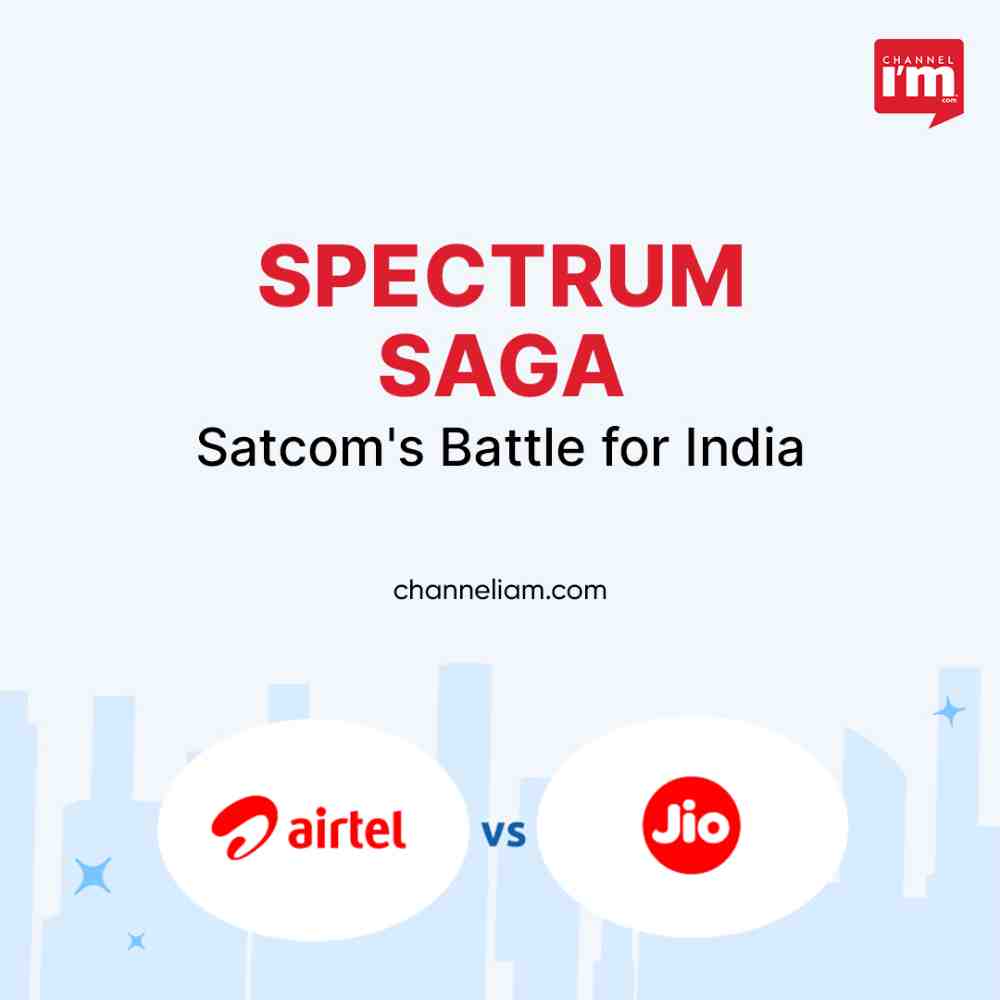
In India satellite phones were banned following the 2008 Mumbai terrorist attacks when attackers were found to be using them. Today, India stands on the brink of a new wave of satellite communication that promises to bring broadband internet to the most remote corners of the country. However, several questions loom large.
Telecom Titans in the Satcom Arena
Is satellite communication becoming the new battleground for disruption in the Indian telecom landscape? Are the telecom giants, Reliance Jio and Bharti Airtel, extending their rivalry into this previously fringe territory? How will international giants like Amazon and SpaceX impact the businesses of Indian telecom moguls Sunil Mittal and Mukesh Ambani? The answers to these questions largely depend on one key factor: the mode of airwave distribution for satcom.

Airwave Distribution Dilemma
The crucial issue that has stalled the satellite communication sector’s progress is the method of airwave distribution. Will it be administered allocation at a fixed price or an auction of spectrum, a finite natural resource that terrestrial telcos have acquired at a premium? This decision has kept the sector hanging in uncertainty.

The Awaited Spectrum Decision
Following deliberations between the Department of Telecommunications (DoT) and the Telecom Regulatory Authority of India (Trai) since 2021, the satcom matter is now reportedly under the government’s highest authorities to determine whether it should be an auction or administered allocation. Trai is expected to release recommendations in November, with spectrum distribution being a major focus.
Traditional Telcos Taking Charge
The dynamics of spectrum allocation have shifted with established telcos now leading the satcom domain. Bharti Group’s OneWeb and Reliance Jio have secured licences for satcom services from DoT, while international challengers like Amazon’s Project Kuiper and SpaceX’s Starlink Satellite are awaiting licences.
Dueling Perspectives on Spectrum Allocation
There is a split in opinions on how satellite spectrum should be allocated. Many voices, including satellite companies, space associations, and IT lobby groups, favor administered allocation over an auction. They argue that satellite spectrum is a shared, non-exclusive resource that can be efficiently used by multiple players, unlike terrestrial spectrum.
Auction Advocates and Their Argument
Reliance Jio contends that spectrum must be allocated through auction, citing legal opinions and precedent. They argue that exclusive allocation through auction is essential to maintain a balanced competitive landscape.

A Case for Administered Allocation
Advocates for administered allocation, including Bharti Enterprises Chairman Sunil Mittal, assert that satellite spectrum is required only in specific areas and should be allocated administratively, considering its limited revenue potential.
Global Experiences with Spectrum Auctions
Critics of auctions, like Larsen & Toubro, point out that satellite spectrum auctions have faced setbacks in various countries, including the UK, Australia, Germany, and Switzerland, leading to delays in satellite service implementation and uncertainties for service providers and users.
The Way Forward
The debate on spectrum allocation for satellite communication continues to shape the future of this promising sector. The decision to be made by the government will determine whether India’s satcom journey will thrive with a particular focus on bridging the digital divide in remote areas.

Intriguingly, the competition among industry giants, regulatory bodies, and government authorities underscores the significance of satellite communication in India’s evolving telecom landscape.
